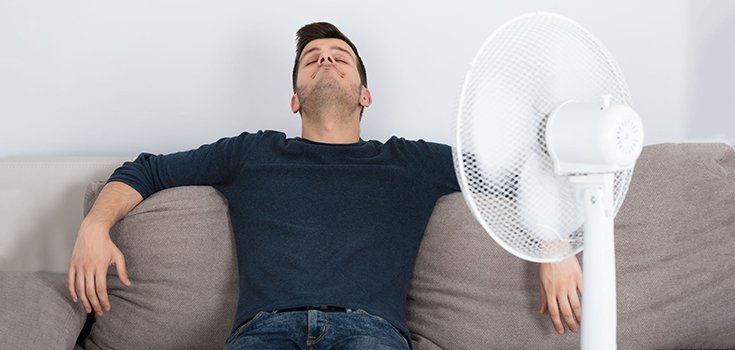Does Sleeping with a Fan on Harm Your Health?

Whether it’s due to heat in the air or just for the soothing noise, many people sleep with a fan on. The question is, other than potentially drying out the air and your throat, could sleeping with a fan on be harming your health?
Some headlines have warned that, yes, sleeping with a fan on is bad for you. But guess what? It may not actually be a big deal.
Dr. Len Horovitz, a pulmonologist at Lenox Hill Hospital in New York City, said:
“There’s nothing about a fan that’s toxic. There’s nothing wrong with circulating air.”
After all, you need your sleep, and it’s hard to get quality shut-eye if you’re dripping with sweat, Horovitz points out.
But if you are going to use a fan, Horovitz says it’s important to keep it at a safe distance from your bed and not blowing directly on you. Also, you should have air filters in your room to rid the air of the dust and other allergens swirling about.
However, even this isn’t much of an issue, according to Philip Chen, MD, assistant professor and program director in the department of otolaryngology at UT Health San Antonio. [2]
He says:
“Most of us do not have so much pollen in our homes that allergy symptoms are that severe, unless the window is open or we have a pet that we are allergic to.”
Since using a fan can dry out your sinuses, Horovitz recommends using a saline solution to irrigate your sinuses every day to cut down not only on dryness, but also congestion and other nasal problems. [1]
If you wake up and can’t breathe, or you have a sore throat, it’s likely that neither your fan nor your A/C is to blame (though they could be). There’s probably something else in the room that’s triggering your allergies. Or, you could be getting sick.
Chen explained:
“If the window is open, the fan is not the problem. If there’s a pet in the room, then the fan is also not the problem.”
One last thing: you might find that when you use a fan at night, you wake up with a stiff neck. It’s not your imagination. Cold air causes muscle contractions. Though it’s less of a problem with fans than it is with air conditioning. For that reason, your air conditioner shouldn’t be blowing directly on you, either, and the temperature shouldn’t be set lower than 68 degrees Fahrenheit (20 degrees Celsius), Horovitz says. [1]
Overall, go ahead and turn your fan on and get some rest if it helps you obtain quality sleep.
Sources:
[1] LiveScience
[2] Refinery29
